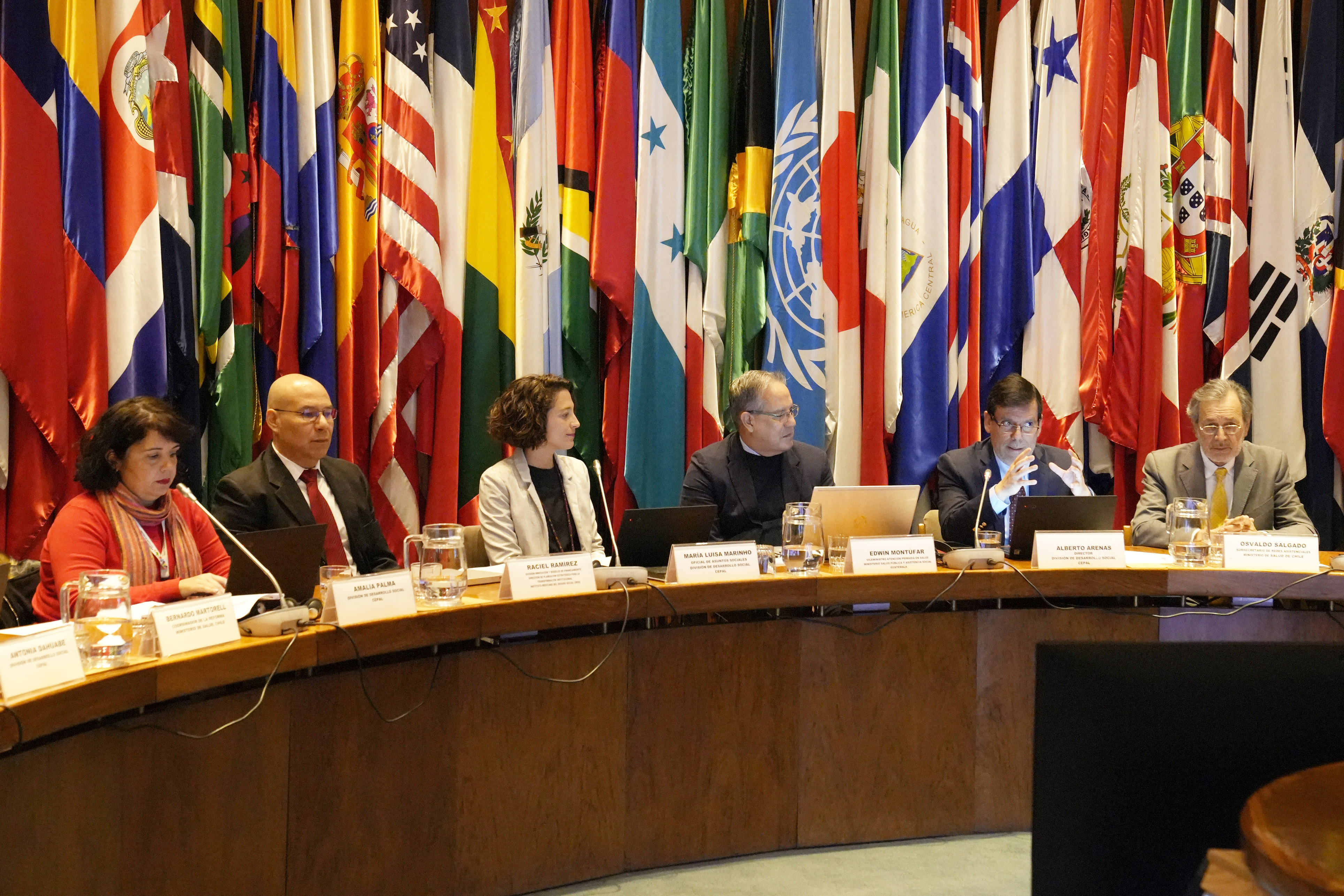At the International Seminar on health inequalities, participants shared learnings, experiences, and strategies to advance towards universal health
Work area(s)
Topic(s)
Faced with the urgency of addressing health inequalities, transforming healthcare systems, and achieving universality, on July 19th, 2023, countries from the region gathered with international experts and reflected on primary health care as the best strategy to tackle current challenges.

ECLAC emphasized the urgency of seizing the window of opportunity created by the COVID-19 pandemic to transform the healthcare systems in Latin America and the Caribbean. This crisis laid bare the structural issues of the region's healthcare systems, such as chronic underfunding, the fragmentation of services and the segmentation of the population based on their ability to pay.
The current situation strains healthcare systems, perpetuates inequalities, and hinders the full exercise of the right to health, affecting the population's well-being and obstructing inclusive and sustainable social development. To address this situation, the region needs structural reforms that promote universality, comprehensiveness, sustainability, and, particularly relevant today, resilience.
In this context, highlighting the importance of enhancing the region's capacity to design, adapt, and implement strategies and policies for universal health, the international seminar "Inequalities in Access to Health: the centrality of Primary Health Care to advance towards universal health" was held, as part of the project "Resilient Health Systems with Universal Coverage in Latin America and the Caribbean" - Chile, Colombia, Guatemala, and Mexico - with the participation of various international organizations and experts in the field. The need for a robust and comprehensive strategy, such as Primary Health Care (PHC), to address health inequalities, advance towards universal health, and contribute to inclusive and sustainable social development was discussed.
PHC places individuals and communities at the center, enabling their active participation and making them the focus of health policies. The strategy also considers addressing the social determinants of health, crucial in identifying barriers to universal health and was central to the discussions held during the event. Additionally, PHC is a strategic approach to tackle the system’s segmentation and fragmentation and, with adequate funding, it is the most relevant and cost-effective strategy for countries to fulfil the agreements of the 2030 Agenda for Sustainable Development.
Strenghtening regional collaboration on universal health
The different experiences shared during the seminar contributed to create important spaces for regional collaboration and strengthening the construction of a new discourse that highlights and reaffirms the centrality of health in combating inequalities and resuming to the path of inclusive and sustainable social development. Vulnerability to contemporary challenges facing the region, such as the ongoing climate crisis and demographic and epidemiological transitions, was identified, leading participants to stress the urgency of having adaptable health systems, once again emphasizing their resilience.
To achieve this, there was consensus on the need for increased financing, public investment, and collaboration within a sustainability framework. The seminar also addressed universal health access and coverage from various dimensions, such as mental health or interventions in early childhood. Moreover, different tools were discussed that strengthen the relationship between individuals and healthcare systems and potentially reduce inequalities, such as digital health and new information technologies.
The session concluded by stressing the need to reposition the urgency of transforming healthcare systems on the public post-pandemic agenda, emphasizing the strategic position of PHC in reducing poverty levels and existing inequalities in the region, alongside addressing health system deficiencies. Thus, it was emphasized that strengthening PHC is essential to advance decisively towards inclusive and sustainable social development, leaving no one behind.
Country(ies)
- Latin America and the Caribbean